Affiliate links on Android Authority may earn us a commission. Learn more.
Battle of the flagship killers: BLU Pure XL, Nexus 5X, OnePlus 2 and Moto X Style (Pure Edition)
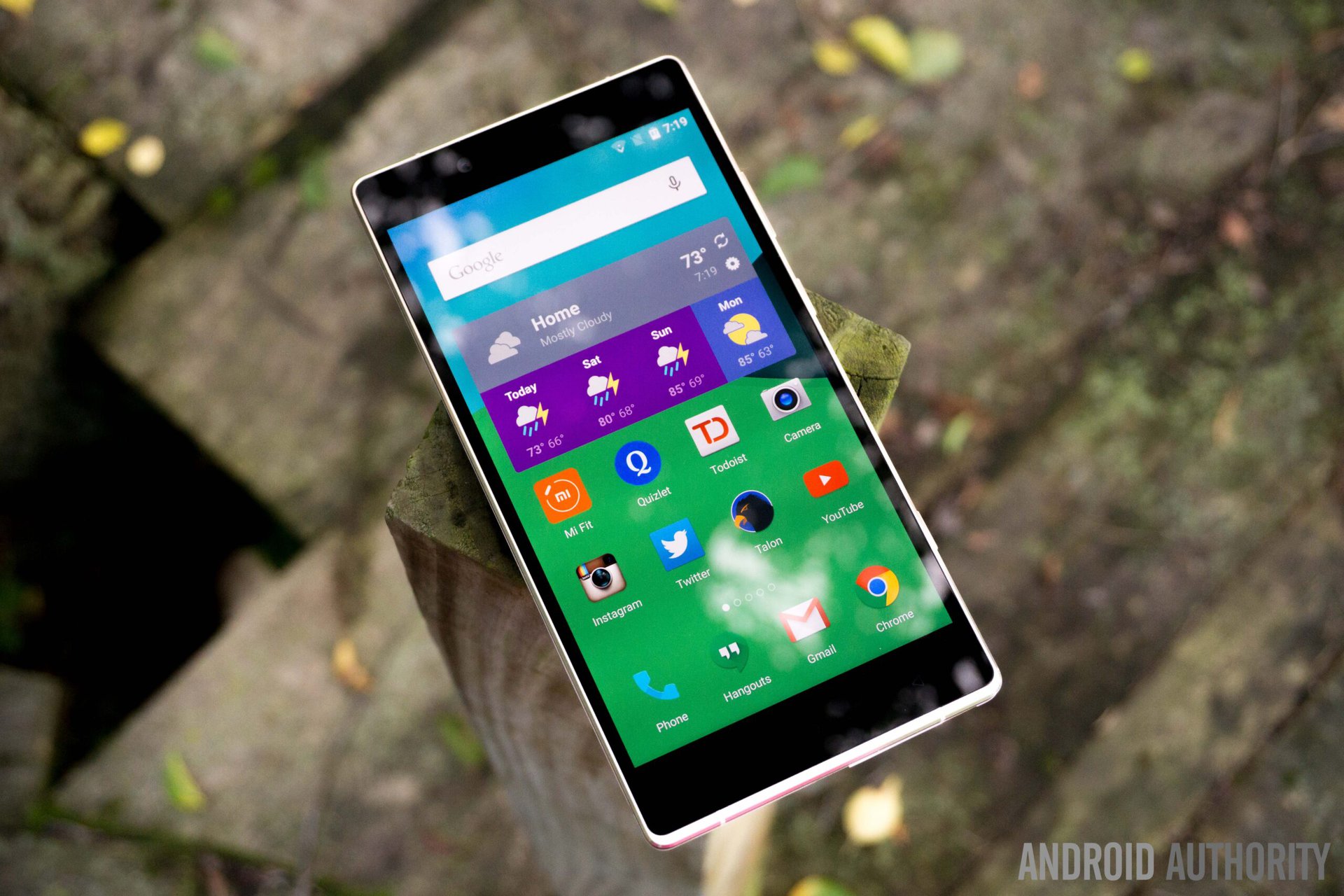
The way we purchase smartphones is drastically changing for the better. If you wanted to purchase the latest and greatest mobile device a few years ago, without paying a huge sum of cash upfront, you would need buy a subsidized smartphone directly through your mobile service provider. This way, the carrier could lock you into a two-year contract and make you pay an early termination fee (ETF) if you wanted out. That’s changing, and we couldn’t be more excited.
Now more and more device manufacturers are selling their phones outright, directly to consumers for cheaper price points. This, in turn, allows the user to switch to basically any mobile carrier they’d like without any repercussions. Nowadays, it’s pretty easy to find a really great smartphone for just around $400. But now that the market is chock-full of affordable, higher-end phones, which one is right for you? That’s what this comparison aims to find out.
[related_videos align=”center” type=”custom” videos=”647086,650937,637478,643164″]
Specifications
We’re going to be comparing four similarly priced, similarly spec’d flagship smartphones – the BLU Pure XL, the OnePlus 2, the Motorola Moto X Style (Pure Edition) and the Nexus 5X. We’ve published full reviews of all four of these smartphones, which you can find linked at the bottom of this post. Before start talking about the design and features of these devices, let’s take a quick look at the specs:
| BLU Pure XL | OnePlus 2 | Motorola Moto X Style (Pure Edition) | Nexus 5X | |
|---|---|---|---|---|
Display | BLU Pure XL 6.0-inch AMOLED display 2560 x 1440 resolution, 490ppi Corning Gorilla Glass 3 | OnePlus 2 5.5-inch LTPS LCD display 1920 x 1080 resolution, 401ppi Corning Gorilla Glass 4 | Motorola Moto X Style (Pure Edition) 5.7-inch IPS LCD display 2560 x 1440 resolution, 520ppi Corning Gorilla Glass 3 | Nexus 5X 5.2-inch LCD display 1920 x 1080 resolution, 424ppi Corning Gorilla Glass 3 |
Processor | BLU Pure XL 2.0GHz octa-core Cortex-A53 MediaTek Helio X10 | OnePlus 2 1.8GHz octa-core Qualcomm Snapdragon 810 | Motorola Moto X Style (Pure Edition) 1.8GHz hexa-core Qualcomm Snapdragon 808 | Nexus 5X 1.8GHz hexa-core Qualcomm Snapdragon 808 |
GPU | BLU Pure XL PowerVR G6200 | OnePlus 2 Adreno 430 | Motorola Moto X Style (Pure Edition) Adreno 418 | Nexus 5X Adreno 418 |
RAM | BLU Pure XL 3GB | OnePlus 2 3, 4GB (depending on storage option) | Motorola Moto X Style (Pure Edition) 3GB | Nexus 5X 2GB |
Storage | BLU Pure XL 64GB | OnePlus 2 16, 32GB | Motorola Moto X Style (Pure Edition) 16, 32, 64GB | Nexus 5X 16, 32GB |
MicroSD | BLU Pure XL Yes, up to 64GB | OnePlus 2 No | Motorola Moto X Style (Pure Edition) Yes, up to 128GB | Nexus 5X No |
Dual SIM | BLU Pure XL Yes | OnePlus 2 Yes | Motorola Moto X Style (Pure Edition) Yes | Nexus 5X No |
Networks | BLU Pure XL 3G: 850/1700/1900/2100 HSPA+ 42Mbps 4G LTE: 2/4/7/17 LTE up to 150Mbps | OnePlus 2 US GSM: 850, 900, 1800, 1900MHz WCDMA: Bands: 1/2/4/5/8 FDD-LTE: Bands: 1/2/4/5/7/8/12/17EU/India GSM: 850, 900, 1800, 1900MHz WCDMA: Bands: 1/2/5/8 FDD-LTE: Bands: 1/3/5/7/8/20 | Motorola Moto X Style (Pure Edition) GSM/GPRS/EDGE: 850/900/1800/1900 MHz UMTS/HSPA+: 850/900/1700 (AWS)/1900/2100 MHz CDMA: 800/850/1900 MHz 4G LTE: B1/2/3/4/5/7/8/12/13/17/25/26/38/41 | Nexus 5X GSM 850/1900 W-CDMA 2/4/5 CDMA 0/1/10 LTE Band 2/4/5/7/12/13/17/25/26/41 |
Software | BLU Pure XL Android 5.1 Lollipop with BLU’s CareFree launcher | OnePlus 2 Android 5.1 Lollipop, OxygenOS | Motorola Moto X Style (Pure Edition) Android 5.1 Lollipop | Nexus 5X Android 6.0 Marshmallow |
Fingerprint scanner | BLU Pure XL Yes | OnePlus 2 Yes | Motorola Moto X Style (Pure Edition) No | Nexus 5X Yes |
Camera | BLU Pure XL 24MP rear-facing camera, dual-LED flash 8MP front-facing camera | OnePlus 2 13MP rear-facing camera, OIS, laser autofocus, dual-LED flash 5MP front-facing camera | Motorola Moto X Style (Pure Edition) 21MP rear-facing camera, dual-LED flash 5MP front-facing camera, wide-angle lens, front-facing flash | Nexus 5X 12.3MP rear-facing camera, f/2.0 aperture, laser-assisted autofocus 5MP front-facing camera, f/2.2 aperture |
Battery | BLU Pure XL 3500mAh, non-removable | OnePlus 2 3300mAh, non-removable | Motorola Moto X Style (Pure Edition) 3000mAh, non-removable | Nexus 5X 2700mAh, non-removable |
Dimensions | BLU Pure XL 164 x 82.2 x 9.3mm, 207g | OnePlus 2 151.8 x 74.9 x 9.85mm, 175g | Motorola Moto X Style (Pure Edition) 153.9 x 76.2 x 11.1mm, 179g | Nexus 5X 147.0 x 72.6 x 7.9mm, 136g |
Price | BLU Pure XL $349 | OnePlus 2 $329 (invite required) | Motorola Moto X Style (Pure Edition) $399 | Nexus 5X $379 |
Display
Some would say the display is the most important part of the smartphone, since it’s the main part of the phone that you interact with every day. While it can sometimes be difficult to find devices with Quad HD displays in the mid-range market, that’s definitely not the case here. Two devices in this comparison come with QHD screen, the BLU Pure XL and the Moto X Style.
Every little aspect of the device that can save precious battery life is crucial
While Motorola’s display might have a slightly higher ppi due to its smaller size, there should be little difference in sharpness between the two. Furthermore, AMOLED displays are known for better contrast with deeper blacks and more vibrant colors, which makes AMOLED the preferred choice for many when compared with LCD screens. AMOLED displays also tend to be less aggressive when it comes to battery consumption, giving the Pure XL’s display another advantage here.
The other two devices in this comparison sport Full HD displays. The OnePlus 2 has a 5.5-inch LCD screen with a pixel density of 401ppi, while the Nexus 5X, Google’s latest affordable flagship, comes with a 5.2-inch LCD display with a pixel density of 424ppi. Some would prefer 1080p panels over 1440p screens because in some cases, it can be difficult to tell the difference between the two. Even though having a device with a lower resolution display might result in a bit better battery life, we’d think most users would go with the device that has a higher pixel count.
Performance and hardware
On the performance front, all of these devices are pretty much just as good as other top-tier flagships on the market. The Moto X Style and Nexus 5X are both powered by the Qualcomm Snapdragon 808 CPU. Even though the Moto X Style sports one more gigabyte of RAM than the Nexus 5X does, we’d say both devices perform at about the same level. It will be interesting to see if the 5X is less future-proof than the Moto X Style due to its 2GB of RAM, but for now, they both perform quite well. In the case of storage options, the Nexus 5X only comes in 16 and 32GB options, with no room for expandable memory. The Moto X Style, on the other hand, comes in 16, 32 and 64 flavors, with microSD expansion up to 128GB.
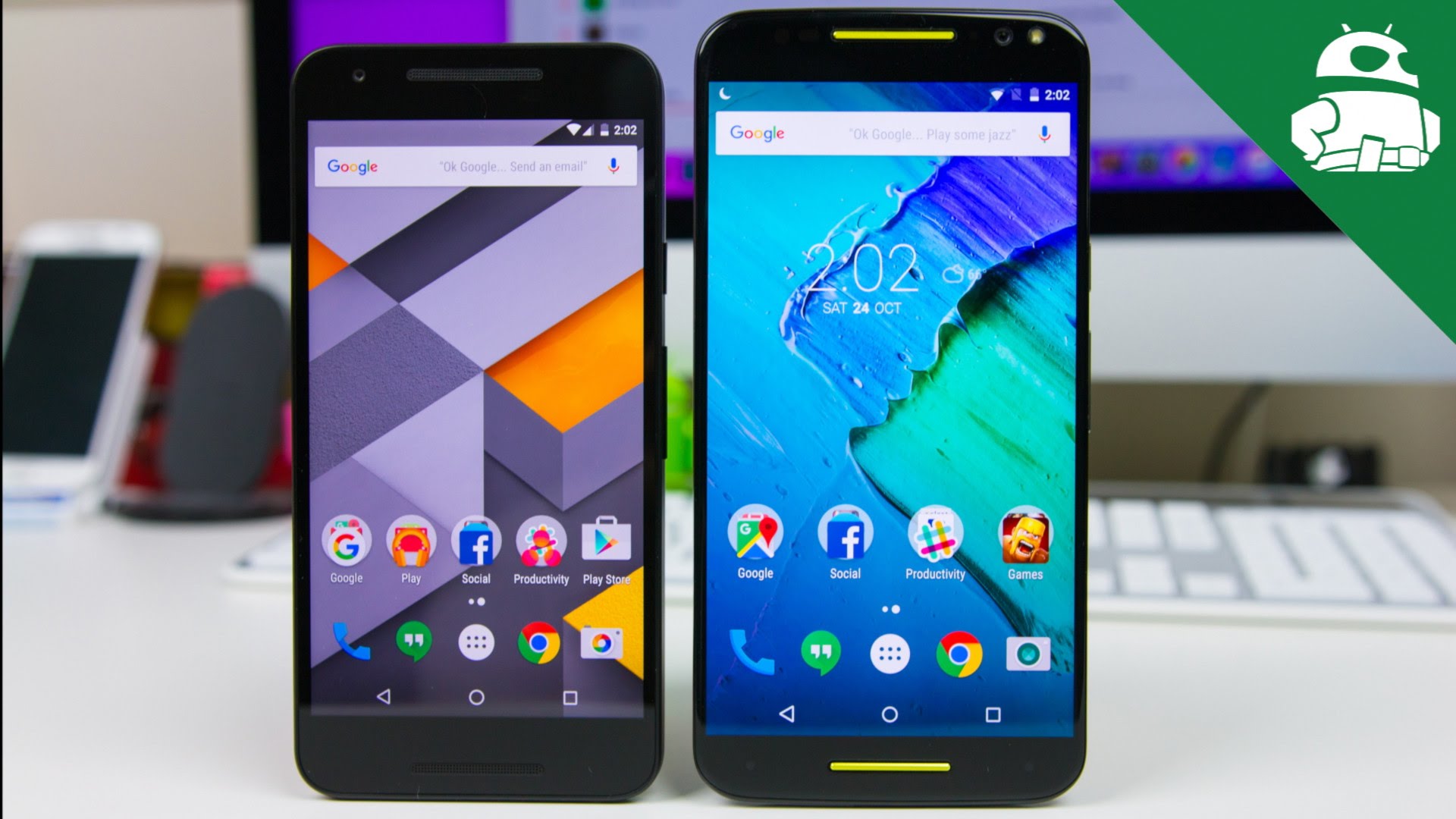
Next up we have the OnePlus 2, which comes with Qualcomm’s flagship Snapdragon 810 processor, clocked at 1.8GHz and backed by 3 or 4GB of RAM depending which storage option you choose. Overall the OnePlus 2 is great in the performance section, though OnePlus’ OxygenOS software was more to blame for the majority of the bugs we experienced. Applications and games would crash every so often, and the device did tend to get a tad laggy at times. It didn’t get too hot, though, and definitely not as much as some claims might suggest. The OnePlus 2 comes in both 16 and 64GB options, though the amount of RAM will change depending on which one you choose. There’s no expandable memory here, so keep that in mind if you’re worried about running out of storage space.
Lastly, BLU’s Pure XL is powered by an octa-core MediaTek Helio X10 processor clocked at 2GHz and backed by 3GB of RAM. It is important to note that this is the first time we’ve ever seen the high-end MediaTek Helio in the US, and it’s great to see more competition in a market largely dominated by Qualcomm chips. So how well does the Pure XL do? Exceptionally well actually, with barely any instances of stutter or lag and no more than you’d expect from any other high-end chip on the market today. It absolutely flies through the user interface, and opening, closing and switching between applications is a breeze. There’s only one storage option, 64GB, and it comes with a microSD card slot that supports up to an additional 64GB of space.
Take a look at the benchmarks below. As you can see, the BLU Pure XL significantly outscores all other phones on the list when it comes to multi-core performance. In terms of single core performance, however, the Nexus 5X and Moto X Style are both neck-and-neck for top contender, with Pure XL in third, followed closely by the OnePlus 2.
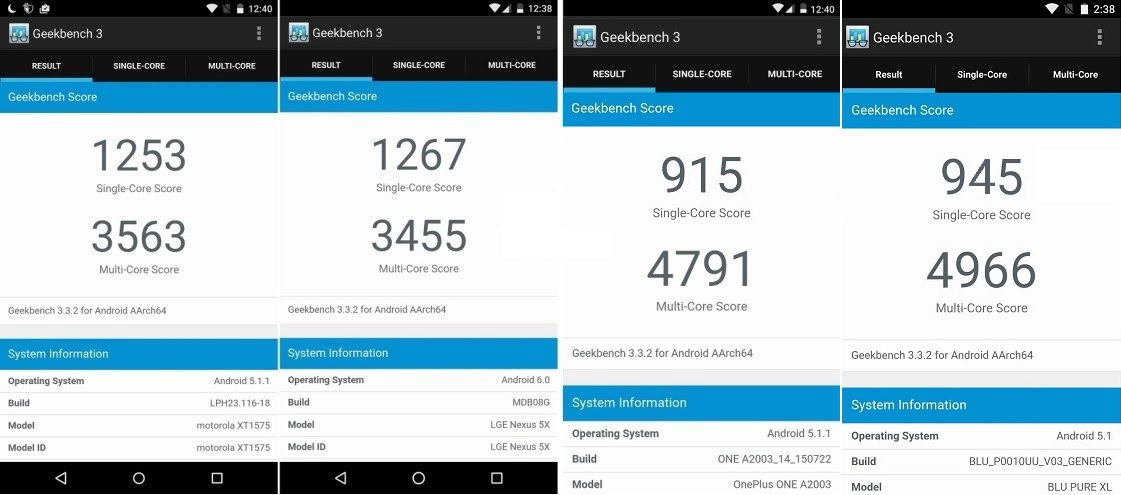
In reality, benchmarks only tell a small part of the story. When it comes to apps that utilize all the cores, the Pure XL will likely provide the fastest experience, but when it comes to day-to-day operations, all four of these phones should offer comparable experiences that actually match up pretty well to what you’d get even with flagships that cost significantly more.
Camera
The camera section is where things get interesting. All four of this high-end devices feature main cameras that are good in some areas, but struggle in others.
The Pure XL does a great job in most lighting conditions
As far as the camera app is concerned, while it may look simplistic on the surface, opening the Modes menu and switching to the Professional mode brings all of this device’s powerful camera features to the surface. With the Professional mode, you can have access to manual controls over aspects like exposure compensation, ISO, white balance, shutter speed and focus settings. Overall, it’s a great app that allows for quick and easy capture when you need it, yet more granular controls for those who want it.
Take a look at the Pure XL’s camera samples below:
Moving on to the OnePlus 2, this device features a 13MP rear-facing camera, OIS, laser autofocus, a dual-LED flash and a 5MP front-facing camera. Picture quality is decent for the most part, though mainly bogged down by an uneven execution in the new camera features. OIS is a welcome addition to the OnePlus 2, though the camera app tends to opt towards slow shutter speeds in low-light conditions, which makes it difficult for OIS to do its job. If you want to take good pictures with the OnePlus 2, you can, it will just require steady hands.
The camera application on the OnePlus 2 is simple and powerful, and also features manual controls for those who want them. Modes included in the app are panorama, 4K video recording, slow motion video capture at 120fps in a 720p resolution, and even a handy Time Lapse function. It isn’t slow by any means, but the main gripe with it was when it came to changing modes. Swiping up and down on the viewfinder worked fine, until getting to panorama, when it would always go to the portrait orientation, and the need to change positions was something we never got used to.
OnePlus 2 camera samples:
The Moto X Style comes with a 21MP rear camera with a dual-LED flash (no OIS here) and a 5MP front camera. Camera quality has always plagued the Moto X line, and we’re happy to report that the Moto X Style changes that. In medium to good lighting photos are very sharp and detailed, and color reproduction is on point with just the right amount vibrancy and saturation. Low light performance is also vastly improved this time around. While it’s not as good as higher-end flagships like the Galaxy S6 or LG G4, it’s still leaps and bounds better than the 2014 Moto X.
Motorola's camera app is simple, almost to a fault
Moto X Style camera samples:
Lastly, the Nexus 5X comes with a 12.3MP rear-facing camera with a pixel size of 1.55 microns, laser-assisted autofocus and slow motion video recording at 120fps. There’s no optical image stabilization here, either, which we would have liked to see. Pretty much all Nexus cameras in the past have not been good (except for maybe the Nexus 6), and we’re happy to say that the 5X has a good camera. Images are sharp and full of detail, with just the right amount of saturation to make the subject pop, and the dynamic range is also excellent. The overall shooting experience with this camera is also very fast, with quick shutter speeds, and fast focusing courtesy of the laser-guided auto focus. Low-light and nighttime shots are good as well, but they may not be as great as Google might have hyped them up to be.
Google’s camera application is still very simplistic and lacks a few of the features that most other cameras in this price range offer. There are no manual controls here, which we definitely would have like to see, considering the much-improved nature of this device’s camera.
Nexus 5X camera samples:
Overall, the cameras on these smartphones are insanely great considering their price points, and they each come with their positives and negatives. Looking for a great all-around shooter with an easy-to-use, powerful camera app? We’d say go for the BLU Pure XL. If you’re looking for a great camera and don’t mind more simplistic, less-powerful apps, though, we’d say go for the Nexus 5X and Moto X Style.
Software
OEMs have been putting an increasing amount of effort into making the overall software experiences much more pleasurable in their devices, and that’s very apparent with the smartphones we’re comparing today. BLU’s Pure XL is running Android 5.1 Lollipop with the company’s Carefree launcher on top, which brings a ton of attractive Material Design tweaks to the user interface. Although the software might not be as stock-like as some of the others on this list, the phone does feature some nifty features like smart gestures, app permissions, and a few general setting options for adjusting things like the notification LED. BLU also says they’re making software updates a priority, so we hope we’ll see Android 6.0 Marshmallow come to the device in the near future.
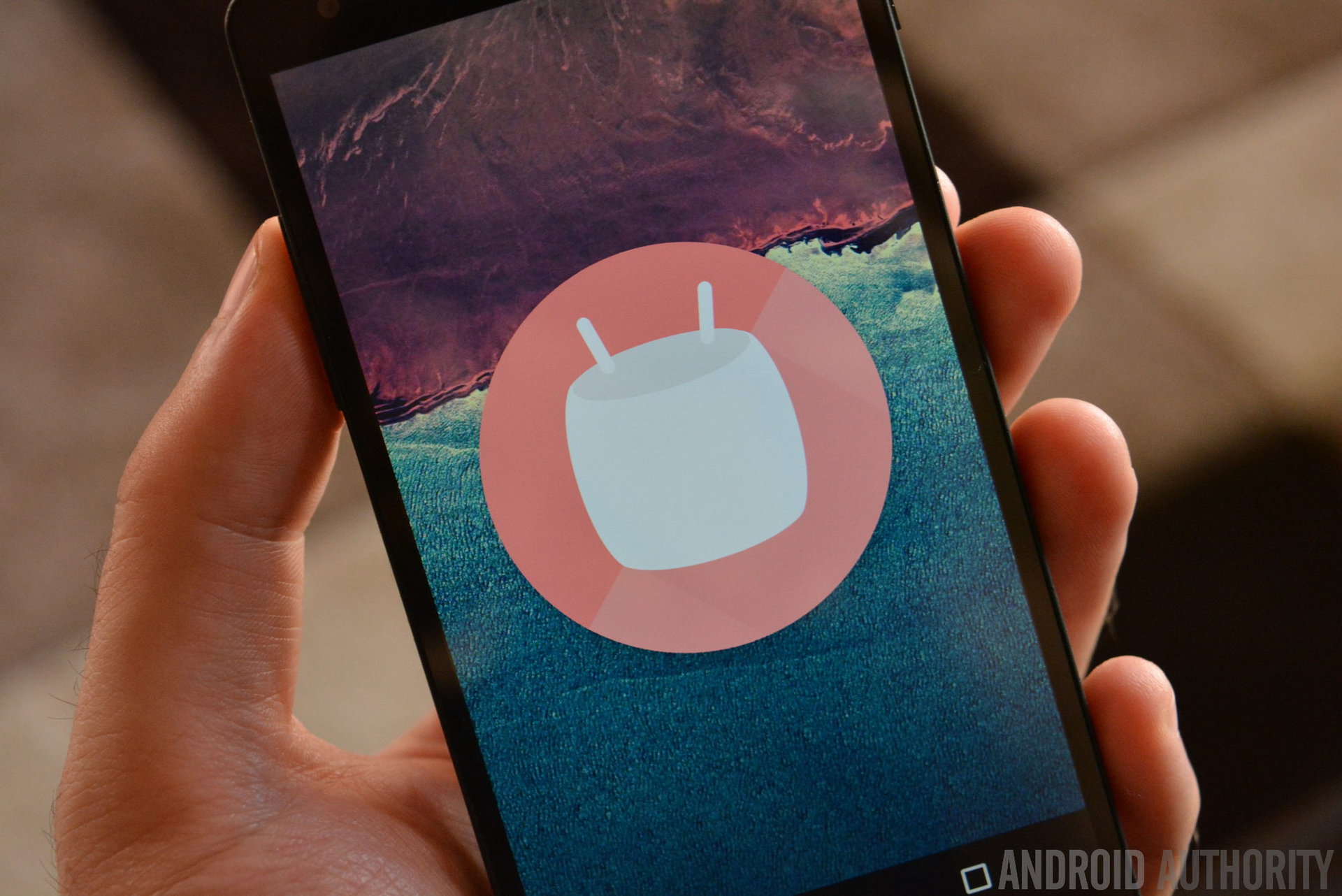
The OnePlus 2 also runs Android 5.1.1 Lollipop with OnePlus’ OxygenOS on top, which brings a few handy tweaks to the UI. OnePlus has struggled to commit to timely software updates in the past, though, so we aren’t exactly sure when the 2 will receive the latest version of Android.
Motorola’s Moto X Style is in the same boat. It’s running Lollipop and has a few of Motorola’s handy software features thrown in, though due to the company’s recent software update schedule, many folks are nervous that their devices won’t receive updates in a timely fashion. In contrast, the Nexus 5X is already on Android 6.0 Marshmallow, and will be among the first devices to receive the latest software updates directly from Google. While timely software updates are nice, you’ll be missing out on some of the handy features other OEMs have been including in their devices as of late.
Everything else
The differences really stand out between these devices when taking into account other notable hardware features, such as fingerprint readers and speaker placement. The BLU Pure XL, OnePlus 2 and Nexus 5X all come with fingerprint scanners, while the Moto X Style does not. We’re overall happy with the speed of all three of these scanners, though we definitely prefer the rear-mounted units found on the Pure XL and the 5X as opposed to the front-facing scanner found on the OnePlus 2.
The Moto X Style may not have a fingerprint scanner, though it makes up for that with its super loud front-facing speakers. We really enjoy the speakers on this device, as they produce a clean and rich sound and plenty of volume which really tops off the media experience. Don’t count these other devices out yet, though. The Pure XL might have a rear-facing speaker, but it’s loud and offers great sound quality for the phone’s price range. The OnePlus 2 has a bottom-firing speaker, which, although it’s pretty easy to cover up when playing games in landscape mode, gets the job done for most multimedia activities. The Nexus 5X also has a front-firing speaker, though it’s not extremely loud and everything tends to sound a bit flat.
For those hoping for extras that help with charging speed, it is worth noting that the BLU Pure XL, Nexus 5X, and Moto X Style all offer quick charging technology so you get make the most out of your battery. Unfortunately, the OnePlus 2 does not.
Pricing and final thoughts
Choosing the right smartphone to fit your needs can be pretty difficult, especially considering how many great, affordable smartphones are on the market at the moment. Each one of these devices we compared today has their positives and negatives, though overall, we’d say the BLU Pure XL offers the best value out there in this price range. With it’s big, high-resolution display, fast fingerprint scanner, premium design and all-around great camera experience, it’s hard to pass up the Pure XL. The best part? It’s available for just $349.00 from Amazon, which is a steal for a smartphone of this stature. The Moto X Style certainly follows close behind, though it’s more expensive price point ($399 for the 16GB model) and lack of fingerprint scanner might be a deal breaker for some.
The Nexus 5X is a great smartphone, too, at just $379 from the Google Store. For the money, we have a hard time recommending it over other smartphones in this category, though. The screen could be better and the fact that it has 2GB of RAM makes us a little nervous. Plus, the $379 price point only gets you 16GB of storage, so you’ll have to spend $50 more to get a device with half the storage space as the Pure XL. And as for the OnePlus 2, it’s inexpensive, and we would recommend it, but the fact of the matter is, you can’t buy it. OnePlus has an invite system that will be backed up for months, so you probably won’t be able to get your hands on one until well into 2016.
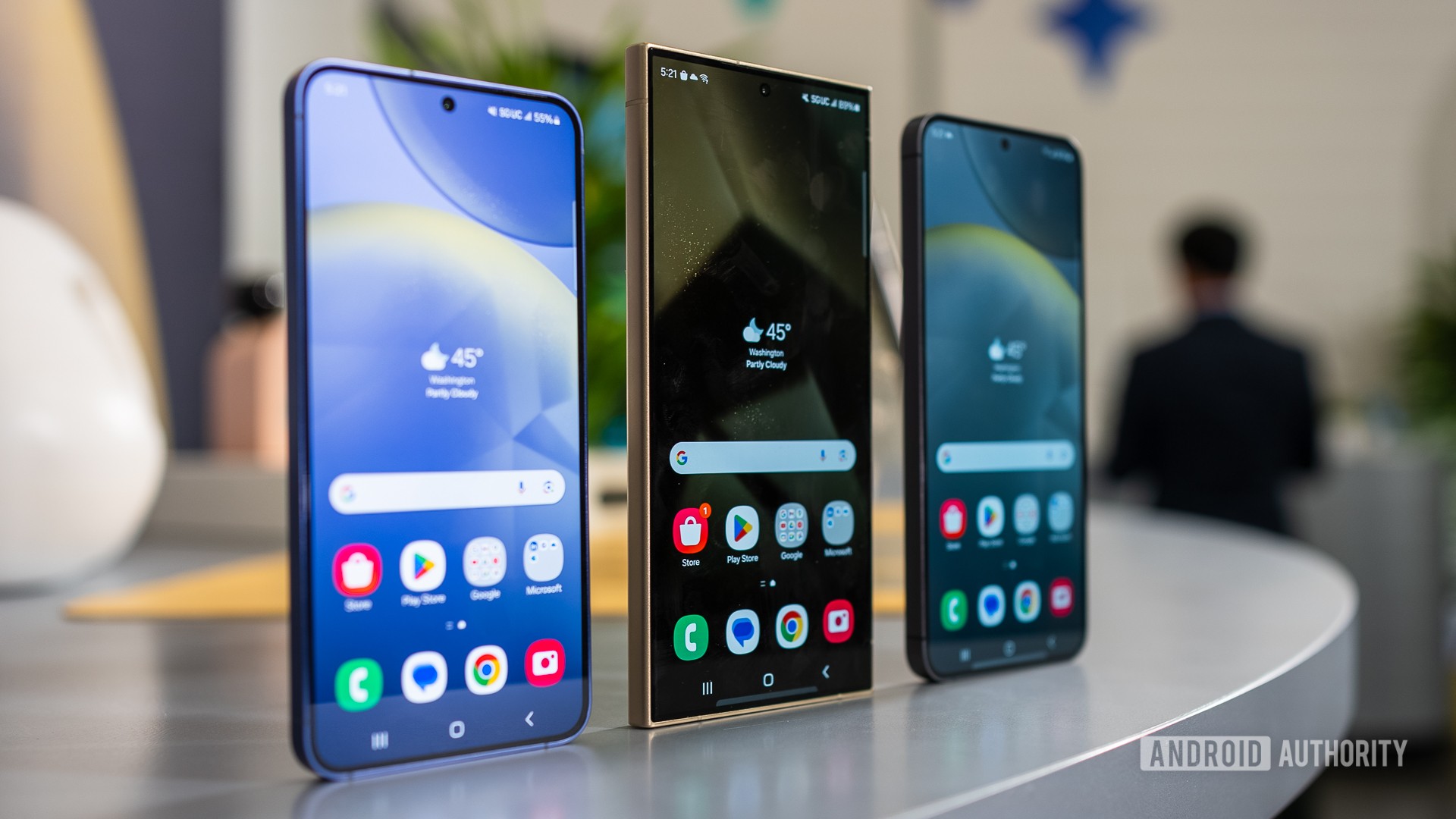
If you’re in the market for a sub-$400 device, this post is for you. However, it can be quite difficult to get the full story with each of these devices, so we’ve attached our full reviews below. And be sure to let us know your thoughts! If given the chance, which smartphone would earn your hard-earned cash?
[related_videos title=”More Video Coverage” align=”center” type=”custom” videos=”651385,651264,649484,642686″]
Don’t miss our full reviews